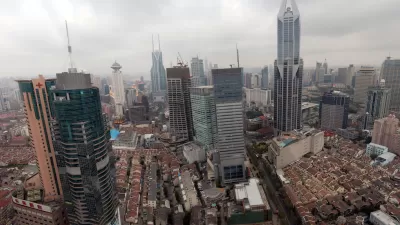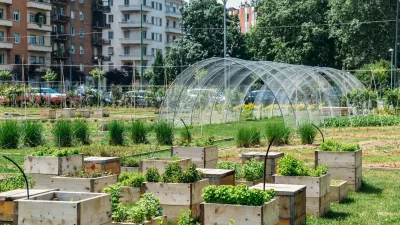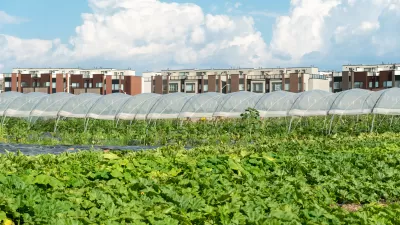Urban farming provides opportunities to increase food security in addition to other benefits.

This article features the many urban farms within the Pittsburgh area and the wide variety of advantages urban farming can bring to the city. Primarily, urban farms are created to address hunger and food insecurity. However, Dani Lamorte’s reporting highlights the multiple co-benefits that urban agriculture can bring to the city and its residents, including outdoor social space, mitigation of urban heat islands, reduction of the carbon footprint, reduction of food deserts, strengthening of food distribution networks, increasing neighborhood aesthetics, and providing opportunities for education and economic development.
The article also highlights the need for transparency and clarity in urban agriculture operations. City officials may be unaware of laws or codes pertaining to urban farming, which can impair critical conversations between the urban farmers and the city, negatively impacting urban farms. There are also far fewer Black-owned and operated farms (92) than white-owned and operated farms (89,328) within Pennsylvania, signaling a large racial discrepancy. Additionally, gentrification and a lack of connection to agriculture and the environment are critical issues in urban farming.
Productive landscapes such as urban farms can have significant positive impacts on their communities. This article serves as a call to action for a better understanding of urban agriculture to planners, city officials, and communities who can encourage urban farms in spaces where they can have long-lasting impacts and strengthen communities in need. They can be a vital resource for basic human rights, increase local food production and food security, and improve community and individual health.
FULL STORY: Urban farms in Pittsburgh can feed a hunger, if they’re allowed to grow

Alabama: Trump Terminates Settlements for Black Communities Harmed By Raw Sewage
Trump deemed the landmark civil rights agreement “illegal DEI and environmental justice policy.”

Planetizen Federal Action Tracker
A weekly monitor of how Trump’s orders and actions are impacting planners and planning in America.

Why Should We Subsidize Public Transportation?
Many public transit agencies face financial stress due to rising costs, declining fare revenue, and declining subsidies. Transit advocates must provide a strong business case for increasing public transit funding.

Understanding Road Diets
An explainer from Momentum highlights the advantages of reducing vehicle lanes in favor of more bike, transit, and pedestrian infrastructure.

New California Law Regulates Warehouse Pollution
A new law tightens building and emissions regulations for large distribution warehouses to mitigate air pollution and traffic in surrounding communities.

Phoenix Announces Opening Date for Light Rail Extension
The South Central extension will connect South Phoenix to downtown and other major hubs starting on June 7.
Urban Design for Planners 1: Software Tools
This six-course series explores essential urban design concepts using open source software and equips planners with the tools they need to participate fully in the urban design process.
Planning for Universal Design
Learn the tools for implementing Universal Design in planning regulations.
Caltrans
Smith Gee Studio
Institute for Housing and Urban Development Studies (IHS)
City of Grandview
Harvard GSD Executive Education
Toledo-Lucas County Plan Commissions
Salt Lake City
NYU Wagner Graduate School of Public Service





























